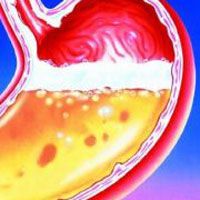Article
New Procedure Successfully Controls Symptoms of Gastroesophageal Reflux Disease
The LINX Reflux Management System was recently shown to successfully control reflux-related symptoms in patients with gastroesophageal reflux disease (GERD), reducing their need to continue treatment with proton pump inhibitors (PPIs) and other acid-suppression medications.

The LINX Reflux Management System was recently shown to successfully control reflux-related symptoms in patients with gastroesophageal reflux disease (GERD), reducing their need to continue treatment with proton pump inhibitors (PPIs) and other acid-suppression medications.
Initially approved by the FDA in early 2012, LINX is currently the sole FDA-approved medical device indicated to safely and effectively treat GERD.
Composed of interlinked titanium beads with magnetic cores, the device is implanted through a minimally invasive laparoscopic procedure — a positive alternative to the more common yet disruptive fundoplication.
Every patient involved in the five-year LINX study had pathologic levels of acid in their esophagus and compromised quality of life from their reflux disease.
Specifically, the five-year mark saw 85% patients free from daily PPI dependence, bothersome heartburn reduced to 11.9% from 89% at baseline, and bothersome regurgitation reduced to 1.2% from 57% at baseline.
Study results published in Clinical Gastroenterology and Hepatology indicated the LINX procedure specifically worked to normalize acid levels in the esophagus, thereby safely relieving heartburn and regurgitation.
Robert Ganz, MD, FASGE, Chief of Gastroenterology, Abbott Northwestern Hospital and Associate Professor of Medicine, University of Minnesota, said in a news release, “This study demonstrates the LINX procedure provides significant and durable improvement in heartburn, regurgitation, PPI independence, and quality of life. Patients can now have a relatively simple procedure to restore their sphincter function and avoid the invasiveness required in fundoplication procedures. In my view, LINX represents the next generation of anti-reflux treatment.”





